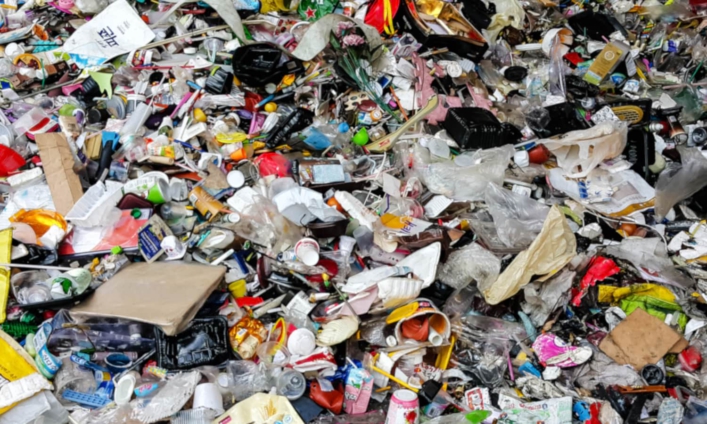Representatives from 174 countries are expected to convene in Ottawa in Canada, for the fourth session of the Intergovernmental Negotiating Committee (INC-4) on plastic pollution.
Scheduled from April 23 to 29, the meeting marks a significant step in the negotiation process, with only one more session expected to follow before finalizing negotiations later this year.
Executive Secretary of the INC, Jyoti Mathur-Filipp, emphasized that both humanity and the environment are experiencing significant challenges due to plastic pollution, highlighting the critical importance of the negotiating session.
“It is an opportunity to make significant progress for a robust agreement that would allow future generations to live in a world free of plastic pollution,” Jyoti said.
The negotiations come against the backdrop of what experts have labeled a growing plastic crisis. Since the 1950s, the world has generated 9.2 billion tonnes of plastic, with 7 billion tonnes ending up as waste, contributing to overflowing landfills and contaminating bodies of water, soil, and oceans.
Current data indicates that humanity now produces 430 million tonnes of plastic annually, with two-thirds of it comprising short-lived products that quickly turn into waste. Some of this plastic finds its way into the food chain, posing potential risks to human health.
During INC-4, the objective is to progress a preliminary version of the global agreement for finalization in Busan in the Republic of Korea, in December. The discussions thus far have centered on mitigating pollution throughout the entire lifespan of plastics, from their production to their disposal.
The negotiation process commenced officially in 2022 at the fifth session of the United Nations Environment Assembly, a significant milestone in global environmental governance.
Following two years of deliberation, the Intergovernmental Negotiating Committee reports transitioning from broad perspectives to a refined draft text.
This year's World Environment Day, marking its fiftieth anniversary, is dedicated to addressing the crisis of plastic pollution. Head of the United Nations Environment Programme's (UNEP's) Life Cycle Initiative, Llorenç Milà i Canals, emphasized that many people underestimate the significant impacts of a material deeply ingrained in their daily lives, affecting not only wildlife but also climate and human health.
“Many people aren’t aware that a material that is embedded in our daily life can have significant impacts not just on wildlife, but on the climate and on human health,” said Llorenç.
The production of plastic stands as one of the most energy-intensive manufacturing processes globally. Derived from fossil fuels like crude oil, plastics undergo transformation through heat and additives into polymers. In 2019 alone, plastics contributed 1.8 billion metric tonnes of greenhouse gas emissions, amounting to 3.4% of the global total.
Latest Stories
-
Barrick Mining removes Mali gold complex from 2025 output forecast, sources say
2 hours -
Nearly 50 people killed in South Africa floods
4 hours -
Kenya’s Ruto says blogger died at hands of police, shifting official account
4 hours -
Calm returns to Los Angeles after hundreds arrested
4 hours -
‘We’re working overnight, but we can’t publish everything’ – Deputy AG Srem Sai
4 hours -
ORAL process is not slow, its moving fast, Deputy AG Srem Sai tells Joy News
5 hours -
Ex-convict remanded over alleged romance scam, sextortion
5 hours -
Court remands suspect over Nsawam-Adoagyiri riot
5 hours -
Police arrest fake doctor over fraud
6 hours -
‘For the sake of truth’: A Weinstein victim’s decision to take the stand again
6 hours -
Ablekuma West MP Counsels BECE candidates
6 hours -
Horizons-China, SIL partners with V/R Minister to tackle menstrual hygiene
6 hours -
I started doing 3D drawing at age 11 – 16-year-old CEO reveals
6 hours -
Harvey Weinstein guilty of sexual assault after New York retrial
6 hours -
Menscook isn’t exclusively for the elite – Manager
6 hours

